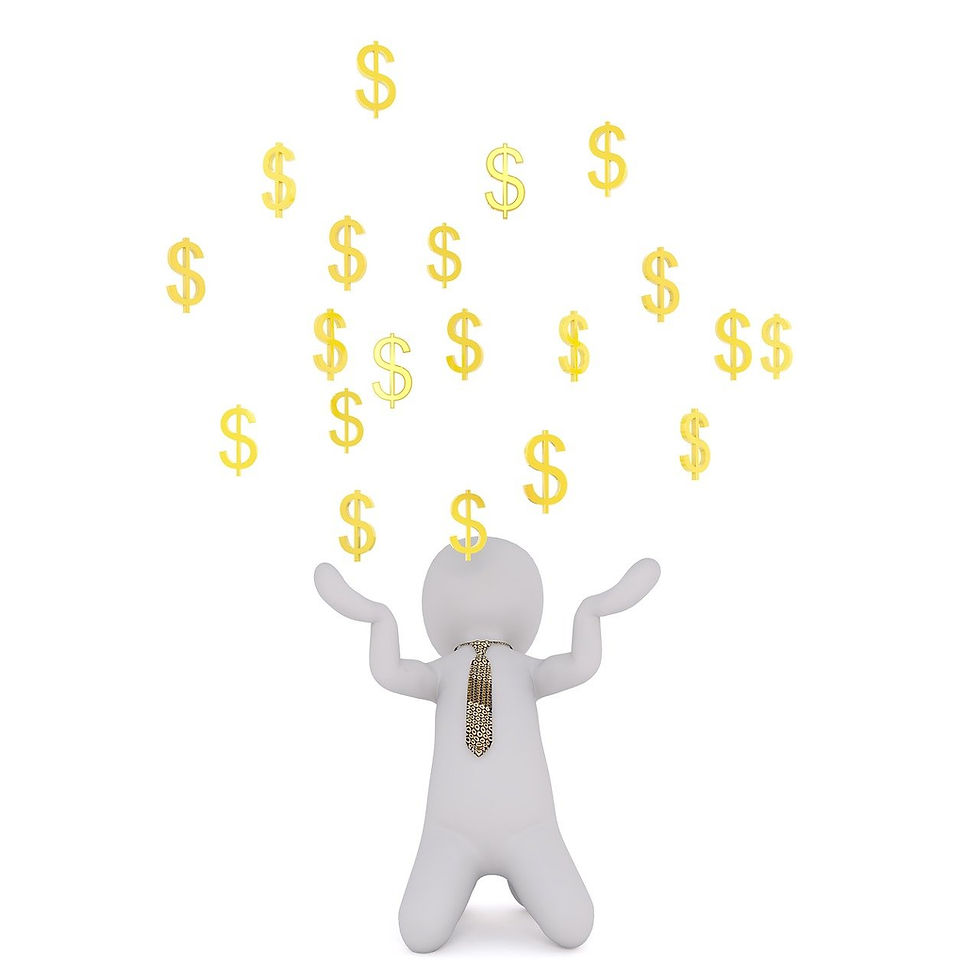Which Bet Will You Choose? A Lesson In Framing
- Patrick Ling

- Sep 21, 2022
- 3 min read
Most people would not find the current market environment familiar. At the economic level, the last time something similar happened was back in the 1970s during the Great Inflation period. At the US stock market level, it is similar to the Great Financial Crisis in 2008 many years ago. This is the environment where some people might be tempted to dabble in risk-taking, with dreams of getting it right and making a fortune. This behavior is driven by a very powerful effect called framing. So let's take a closer look at this.
Let’s do a simple thought experiment. Choose between two different bets as shown below.

I’m sure all of you will choose the 2nd bet without any hesitation since the bet is expected to make money. For the 1st bet, you are expected to lose money since you paid $1 and can only expect to get back half of what you paid.
Jedi Mind Trick
Let me now reframe the two bets in a different manner starting with the first bet. In the first bet, you pay $1 for a lottery ticket. There is a 1 in 2 million chance that you can win $1 million when the results are announced one month later. In the second bet, you invest $1 in a fund. There is a 68.2% chance that you will make money after one month. If that happens, you are likely to get a 2.0% return on investment. However, there is a 31.8% chance that you will lose money but you are likely to only lose 1.9% of your investment.
Presented like this, which option would you go for? You can verify the expected payoff but it is the same payoff shown above! Just in case there is any doubt, the calculations are below.
Expected payoff for bet 1 = 1/2,000,000 x $1,000,000 = $0.50
Expected payoff for bet 2 = [(68.2% x 2.0%) + (31.8% x -1.9%)] x $1 + $1 = $1.01
I’m sure the choice is now not as clear as before. Many would probably choose the lottery because who can resist the chance to win $1 million? Contrast this with the other boring bet where if you win, you only win 2.0% of $1 which is only 2 cents.
What You Focus On Determines Your Choice
The effect of framing is powerful because it muddles up the really important details. It is not easy for the mind to calculate expected payoffs. And quite frankly, the probability is not readily available information. It is much easier to focus on numbers that are known. In the case of the lottery, it is the prize money. But even if all the facts are made available, people will still focus on the prize money because it is the hope that people focus on. But if you want a shot at growing your wealth, you are better off investing your money.
Incidentally, the numbers for the second bet are taken from the performance statistics of the multi-strategy model that iFAST is implementing for clients as shown below.

You might scoff at an expected payoff of only about 1% in a month but over a year, it works out to roughly 12%. And this doesn’t even factor in compounding.
Framing Effects In Capital Markets
This lottery framing effect also happens in capital markets. It is much easier to observe the returns generated from taking a position than the risk taken to generate the returns. This is why investors are often captivated by stories of huge returns in news headlines. This leads them to think that they can also achieve those returns by investing in the same investments that generated those returns in the recent past. This inevitably leads to bubbles and the eventual burst in the bubbles.
Another reason why people focus on returns is because they are looking for life-changing events and they want them quick. This is no different from the lottery mindset. They want quick and big wins so that they can change their lives almost overnight. It is not impossible but the odds are stacked greatly against them and the risk taken is also very high.
Many stocks have fallen significantly from their peaks. This can make them look very appealing to many retail investors if they imagine the stocks recovering back to their peak. However, this is anchoring on an assumption that may not turn out to be true. Many stocks failed to recover back to their peaks after the tech bubble burst in 2000. Some even disappeared forever.
Slow & Steady Way
It takes a very high willingness to delay gratification to pursue the boring but higher probability path of growing wealth steadily over time by focusing on expected payoff rather than just returns alone. But once you start on that path, you will be glad some years down the road.




Comments